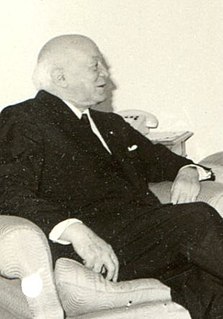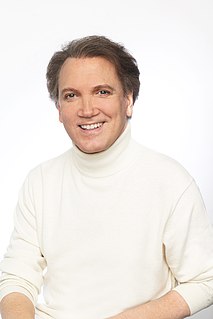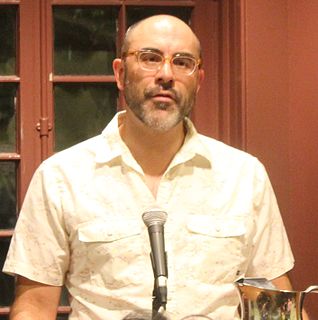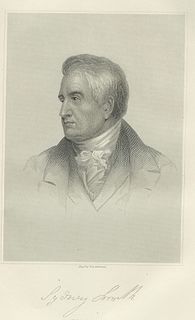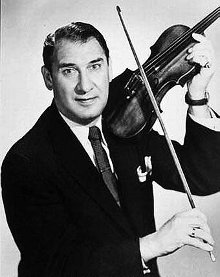Top 1115 Usual Quotes & Sayings - Page 17
Explore popular Usual quotes.
Last updated on December 4, 2024.
Hagrid, look what I’ve got for relatives!” Harry said furiously. “Look at the Dursleys!” “An excellent point,” said Professor Dumbledore. “My own brother, Aberforth, was prosecuted for practicing inappropriate charms on a goat. It was all over the papers, but did Aberforth hide? No, he did not! He held his head high and went about his business as usual! Of course, I’m not entirely sure he can read, so that may not have been bravery. . . .
The more we know of the fixed laws of nature the more incredible do miracles become, - that the men at that time were ignorant and credulous to a degree almost incomprehensible by us, - that the Gospels cannot be proved to have been written simultaneously with the events, - that they differ in many important details, far too important as it seemed to me to be admitted as the usual inaccuracies of eye-witnesses; - by such reflections as these... I gradually came to disbelieve in Christianity as a divine revelation.
The emotionally sound person should be able to take risks, to ask himself what he really would like to do in life, and then to try to do this, even though he has to risk defeat or failure. He should be adventurous (though not necessarily foolhardy); be willing to try almost anything once, just to see how he likes it; and look forward to some breaks in his usual life routines.
These airplanes we have today are no more than a perfection of a toy made of paper children use to play with. My opinion is we should search for a completely different flying machine, based on other flying principles. I consider the aircraft of the future, that which will take off vertically, fly as usual and land vertically. This flying machine should have no parts in movement. The idea came from the huge power of the cyclons
I took many notes, more than usual before I sat down and wrote Act One, Scene One. I had perhaps eighty pages of notes. . . . I was so prepared that the script seemed inevitable. It was almost all there. I could almost collate it from my notes. The story line, the rather tenuous plot we have, seemed to work out itself. It was a very helpful way to write, and it wasn't so scary. I wasn't starting with a completely blank page.
Well, method is, it seems to me, a natural growth out of a need, and from a need the modern artist has found new ways of expressing the world about him. I happen to find ways that are different from the usual techniques, which seems a little strange at the moment, but I don't think there's anything very different about it. I paint on the floor and this isn't unusual - the Orientals did that.
By destroying the peasant economy and driving the peasant from the country to the town, the famine creates a proletariat... Furthermore the famine can and should be a progressive factor not only economically. It will force the peasant to reflect on the bases of the capitalist system, demolish faith in the tsar and tsarism, and consequently in due course make the victory of the revolution easier... Psychologically all this talk about feeding the starving and so on essentially reflects the usual sugary sentimentality of our intelligentsia.
My sister stood up, trembling, and I must admit that I expected her familiar sneer to have taken its usual place on her face. But all I could find there was unhappiness and fear. Fear of my reaction, perhaps. But when a person has lived a life like hers, a life of promiscuity, rootlessness, and substance abuse, resentment and fear tend to replace all reasonable and proper emotions, and the world becomes your enemy.
Historical science is not worse, more restricted, or less capable of achieving firm conclusions because experiment, prediction, and subsumption under invariant laws of nature do not represent its usual working methods. The sciences of history use a different mode of explanation, rooted in the comparative and observational richness in our data. We cannot see a past event directly, but science is usually based on inference, not unvarnished observation (you don't see electrons, gravity, or black holes either).
The idea that the creative endeavor and mind-altering substances are entwined is one of the great pop-intellectual myths of our time. Substance abusing writers are just substance abusers — common garden variety drunks and druggies, in other words. Any claims that the drugs and alcohol are necessary to dull a finer sensibility are just the usual self-serving bullshit. I've heard alcoholic snowplow drivers make the same claim, that they drink to still the demons.
I was radicalised by being a minister. That's when I saw how the system really worked. And that is not a very usual process, but it certainly happened to me: it gave me a lot more experience, it helped me to understand where power really lay, develop strategies for undermining or changing it, and so on. But that isn't the norm. Mr Gladstone moved to the left as he got older, and one or two other people have, but normally you swing the other way.
In the usual (though certainly not in every) public decision on economic policy, the choice is between courses that are almost equally good or equally bad. It is the narrowest decisions that are most ardently debated. If the world is lucky enough to enjoy peace, it may even one day make the discovery, to the horror of doctrinaire free-enterprisers and doctrinaire planners alike, that what is called capitalism and what is called socialism are both capable of working quite well.
End production today. Wrap party as usual a little sad. Slow danced with Scarlett. Broke her toe. Not my fault. When she dipped me back, I stepped on it. Penélope [Cruz] and Javier [Bardem] anxious to work with me again. Said if I ever come up with another screenplay to try and find them. Goodbye drink with Rebecca [Hall]. Sentimental moment. Everyone in cast and crew chipped in and bought me a ballpoint pen.
The arrival of the Barbary pirates radically changed English attitudes. Instead of patriotic pirates plundering foreign cargoes and bringing them homes to enrich their countrymen, the 'Turks' were in the usual Mediterranean business of slave-raiding - and now the English were the victims. The West Country men suffered the heaviest, and did not appreciate the irony. The Newfoundland fishery, dominated by Devon ports, lost at least 20 ships in 1611 alone.
The main question to a novel is -- did it amuse? were you surprised at dinner coming so soon? did you mistake eleven for ten? were you too late to dress? and did you sit up beyond the usual hour? If a novel produces these effects, it is good; if it does not -- story, language, love, scandal itself cannot save it. It is only meant to please; and it must do that or it does nothing.
People do not want to be disillusioned by the new president [Barak Obama]. The liberals felt, finally, this is our time. Now they're worried. Now what they see is more business as usual. We all want to give him the benefit of the doubt, we know it's a tough job and he inherited a mess, but at the end of the day, is it really change we can believe in when there's no public options and Wall Street reform has no teeth in it? It really looks a lot like we just changed the color.
Daisy was a consciously happy young woman without any of the usual endowments that make for conscious happiness, money apart. She was not pretty, she was not clever, she had no friends, no talents, nor even an imagination to make her think she was happy when she was really miserable. As she was never miserable, she had no need of an imagination.
In our most trivial walks, we are constantly, though unconsciously, steering like pilots by certain well-known beacons and headlands, and if we go beyond our usual course we still carry in our minds the bearing of some neighboring cape; and not till we are completely lost, or turned round,--for a man needs only to be turned round once with his eyes shut in this world to be lost,--do we appreciate the vastness and strangeness of nature.
I haven't really lost faith in my work - other than for quite short periods when the work is harder than usual - but I have hit points where I want to quit because cartooning is just too hard, too demanding an art form. Basically, there's nothing to be done about that but to keep going (if you're in the middle of something), or stop for a while and do other things while you wait for your motivation to return.
In Acts 14:1, we are told, "At Iconium Paul and Barnabas went as usual into the Jewish synagogue. There they spoke so effectively that a great number of Jews and Gentiles believed." This is what should be sought in Christian schools, not just teaching, but effective teaching. Christian content alone is insufficient. It must be presented in a certain way, and that way cannot be reduced to technique. Nevertheless, God has graciously made it possible to bring people the truth by how the truth is presented.
In the domain of pharmaceuticals, we need a metric for health impact, and with this metric we can then assess the value of the introduction of a new product and pay its innovator accordingly, say on the basis of the product's measured health impact during its first ten years on the market. In exchange, innovators must of course renounce the usual rewards they are otherwise entitled to, namely the patent-protected markup on the price of their product.
There are moments in our lives, there are moments in a day, when we seem to see beyond the usual- become clairvoyant. We reach then into reality. Such are the moments of our greatest happiness. Such are the moments of our greatest wisdom. It is in the nature of all people to have these experiences; but in our time and under the conditions of our lives, it is only a rare few who are able to continue in the experience and find expression for it.
On the most usual assumption, the universe is homogeneous on the large scale, i.e. down to regions containing each an appreciable number of nebulae. The homogeneity assumption may then be put in the form: An observer situated in a nebula and moving with the nebula will observe the same properties of the universe as any other similarly situated observer at any time.
the Republicans love to say that the Democratic Party is ruled by 'special interests.' But when pressed to name these 'special interests,' the usual reply is women, blacks, teachers, and unions. Those are 'special interests' to be proud of - because together they comprise the majority of Americans. What about the 'special interests' that dominate the Republican Party - the oil companies, the banks, the gun lobby, and the apostles of religious intolerance?
Some of us need to discover that we will not begin to live more fully until we have the courage to do and see and taste and experience much less than usual... And for a man who has let himself be drawn completely out of himself by his activity, nothing is more difficult than to sit still and rest, doing nothing at all. The very act of resting is the hardest and most courageous act he can perform.
These days, most of my interactions with young people are centered on the poetry or theater classes I teach, so the students I know are reading contemporary poets (they love Willie Perdomo) and scripts (No Child, by Nilaja Sun and Twilight by Anna Deavere Smith). I don't know their reading habits outside of our class, but I believe that they enjoy stories that they can relate to, learn from, be challenged by - you know, the usual good writing that every reader craves.
it is only on posters and in advertisement pages that Americans have those chubby cheeks, expanding smiles, smooth looks, and faces flushed with well-being. In fact, almost all are at odds with themselves; drink offers a remedy for this inner malady of which boredom is the most usual sign: as drinking is accepted by society, it does not appear as a sign of their [Americans'] inability to adapt themselves; it is rather the adapted form of inadaptability.
Let us suppose that an ichthyologist is exploring the life of the ocean. He casts a net into the water and brings up a fishy assortment. Surveying his catch, he proceeds in the usual manner of a scientist to systematise what it reveals. He arrives at two generalisations: No sea-creature is less than two inches long. (2) All sea-creatures have gills. These are both true of his catch, and he assumes tentatively that they will remain true however often he repeats it.
To know only one thing well is to have a barbaric mind: civilization implies the graceful relation of all varieties of experience to a central humane system of thought. The present age is peculiarly barbaric: introduce, say, a Hebrew scholar to an ichthyologist or an authority on Danish place names and the pair of them would have no single topic in common but the weather or the war (if there happened to be a war in progress, which is usual in this barbaric age).
You are not entering this world in the usual manner, for you are setting forth to be a Dungeon Master. Certainly there are stout fighters, mighty magic-users, wily thieves, and courageous clerics who will make their mark in the magical lands of D&D adventure. You however, are above even the greatest of these, for as DM you are to become the Shaper of the Cosmos. It is you who will give form and content to the all the universe. You will breathe life into the stillness, giving meaning and purpose to all the actions which are to follow.
I was worried that I, the artist Morimura, would have conflicts with the participating artists and develop a strenuous relationship with them. But the actual experience was completely the opposite. The artists accepted my requests rather positively, because it came from a fellow artist. I strongly feel that the fact that my being an artist avoided the usual curator vs artist tension, and led to creating a positive atmosphere as well as developing a solidarity amongst artists and building a community for artists.
But when you are doing an animated voice, it has to have more energy than usual or it falls flat and doesn't work. For myself, I found that I had to put myself in the same physical or emotional state as Sid, in order to make that voice sound alive and authentic. So if there was a scene in which he was running, I would be running beforehand to sound out of breath. That's important because the audience can tell intuitively if it does not sound real.
It is a special kind of enlightenment to have this feeling that the usual, the way things normally are, is odduncanny and highly improbable. G.K.Chesterton once said that it is one thing to be amazed at gorgon or a griffin, creatures which do not exist; but it is quite another and much higher thing to be amazed at a rhinoceros or a giraffe, creatures which do exist and look as if they don't. This feeling of universal oddity includes a basic and intense wondering about the sense of things.
Their usual mistaken premise is that they affirm some consensus among people, at least among tame peoples, concerning certain moral principles, and then conclude that these principles must be unconditionally binding also for you and me-or conversely, they see that among different peoples moral valuations are necessarily different and infer from this that no morality is binding-both of which are equally childish.
I am closest of all to happiness—although I won’t attempt to define just what it is—when I turn away from the window and am aware, with the edge of my consciousness, that a moment ago I was not here, there was simply the world outside the window, and something beautiful and incomprehensible, something which there is absolutely no need to ‘comprehend,’ existed for a few seconds instead of the usual swarm of thoughts, of which one, like a locomotive, pulls all the others after it, absorbs them all and calls itself ‘I’.
A woman may possess the wisdom and chastity of Minerva, and we give no heed to her, if she has a plain face. What folly will not a pair of bright eyes make pardonable? What dullness may not red lips are sweet accents render pleasant? And so, with their usual sense of justice, ladies argue that because a woman is handsome, therefore she is a fool. O ladies, ladies! there are some of you who are neither handsome nor wise.
As far as I know, Clifford Pickover is the first mathematician to write a book about areas where math and theology overlap. Are there mathematical proofs of God? Who are the great mathematicians who believed in a deity? Does numerology lead anywhere when applied to sacred literature? Pickover covers these and many other off-trail topics with his usual verve, humor, and clarity. And along the way the reader will learn a great deal of serious mathematics.
We all have a suspicion and hope that we've just been part of something special, something that may eventually change our lives. That no one else knows this makes it seem like we are living with a secret that we would like to share, but can't, sort of like having a superpower that's not come online or being president elect. For the moment, our lives proceed as usual, but within a month, we think, everything will change. It's a frustrating, if exciting, disconnect.
In 1915 Sophie Tauber and I carried out our first works in the simplest forms, using painting, embroidery and pasted paper (without using oil colors to avoid any reference with usual painting). These were probably the first manifestations of their kind, pictures that were their own reality, without meaning or cerebral intention. We rejected everything in the nature of a copy or a description, in order to give free flow to what was elemental and spontaneous.
I don't know if I ever mentioned back in 2002 we fought our way into a governor's debate in Massachusetts where, you know, this was televised and I articulated our usual agenda: cut the military, put the dollars into true security here at home, provide healthcare as a human right, raise wages which needed to be living wages, green our energy system, equal marriage? - we were the only ones talking about it back in 2002.
Poor people of all colors are getting poorer and our communities are getting more toxic. There is a misconception that to grow our economy we will have to do business as usual, because cleaning up the environment, mitigating climate change is just too costly. Well, I say the business of poverty is just too expensive a bill for humanity to pay any longer.
In the large sense the primary cause of the Great Depression was the war of 1914-1918. Without the war there would have been no depression of such dimensions. There might have been a normal cyclical recession; but, with the usual timing, even that readjustment probably would not have taken place at that particular period, nor would it have been a "Great Depression.
From my youth onwards I have found in Jesus my great brother. That Christianity has regarded and does regard him as God and Savior has always appeared to me a fact of the highest importance which, for his sake and my own, I must endeavor to understand . . . I am more than ever certain that a great place belongs to him in Israel's history of faith and that this place cannot be described by any of the usual categories.
It had become usual to give Napoleon the Credit for every Successful achievement and every stroke of good fortune. You would often hear one hen remark to another, "Under the guidance of our leader, Comrade Napoleon, I have laid five eggs in six days" or two cows, enjoying a drink at the pool, would exclaim, "thanks to the leadership of Comrade Napoleon, how excellent this water tastes!".
We had a great lunch. Senator Capper paid for it. The Republican pays, as usual. And everything that the Democrats are doin' now, the Republicans pay for it. Everybody asks me, "Will, how long is this going to go on, spending all this money and everything going like this?" I says, "Well, it will go on just as long as the Republicans has got any money. That's all I know about it."
If you look at the Oscars and look at the Best Foreign Language series, you see that the films are coming from everywhere - from Quebec, Israel, Poland, and Belgium. It's not the usual French, German, etc. This category is opening up to socially engaged and political films. I think we're going to see a cross over to the main categories also. It's part of this global environment now and I'm grateful that the Academy is having this window on world cinema.
I was first to understand it was boring to go with heavy shoes to base camp. When we first tried Dhaulagiri, a very difficult approach at high altitude, we needed very heavy boots. So it was usual to wear such heavy boots to approach all base camps. But I thought this was crazy. We needed lighter shoes for many of the approaches.
Hey!" I exclaimed, seeing the total. "They're charging me retail. Glenn!" I complained. "They can't do that." I shook it at him. "I shouldn't have to pay retail!" "What did you expect? You can keep that. It's your copy." I sat back in a huff and shoved it in my bag with my sticky scarf as he typed his slow, painful way through my report. "Where's this human compassion I keep hearing about?" "That's it, baby doll," he said, voice smoother than usual. He was laughing at me.
Patch was dressed in the usual: black shirt, black jeans and a thin silver necklace that flashed against his dark complexion. His sleeves were pushed up his forearms, and I could see his muscles working as he punched buttons. He was tall and lean and hard, and I wouldn't have been surprised if under his clothes he bore several scars, souvenirs from street fights and other reckless behavior. Not that I wanted a look under his clothes.
Nature is nowhere accustomed more openly to display her secret mysteries than in cases where she shows tracings of her workings apart from the beaten paths; nor is there any better way to advance the proper practice of medicine than to give our minds to the discovery of the usual law of nature, by careful investigation of cases of rarer forms of disease.
We can't use the word normal anymore because it's sort of come to be politically incorrect, because normal implies a classification, and categorizations, and exclusions, and so forth. So neurotypical is the word that we now have to use for what I call normal behavior. Neurotypical behaviors are those kinds of behaviors within the range of usual human conduct that do not rise to the level of a disorder.
Having a book is somewhat like having a baby, as many woman writers have observed before me: the conception, the long preparation, the wait, the growing heaviness (not of body in this case but of the spirit and the manuscript) toward the end, the initial delight at the sight of the product, fully formed and seemingly perfect, and then the usual postpartum depression. What will people whose opinion I care about, and those whose views I don't value but have weight in the world of reader, think of it?
What's happening is the language. Not only in the usual sense of being interesting (which it is), but in the new sense that words are events, as real and important in themselves as wars and lovers... It is to the word, then, that the mind moves, and the word responds by taking on a physicality, even a sensuality, we have all been trained to ignore. Words have weight, and the distance between two can be a chasm filled with forces of association... What Clark is doing is genuinely new.
To be an object of hatred and aversion to their contemporaries has been the usual fate of all those whose merit has raised them above the common level. The man who submits to the shafts of envy for the sake of noble objects pursues a judicious course for his own lasting fame. Hatred dies with its object, while merit soon breaks forth in full splendor, and his glory is handed down to posterity in never-dying strains.



